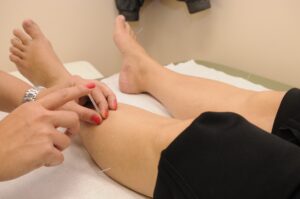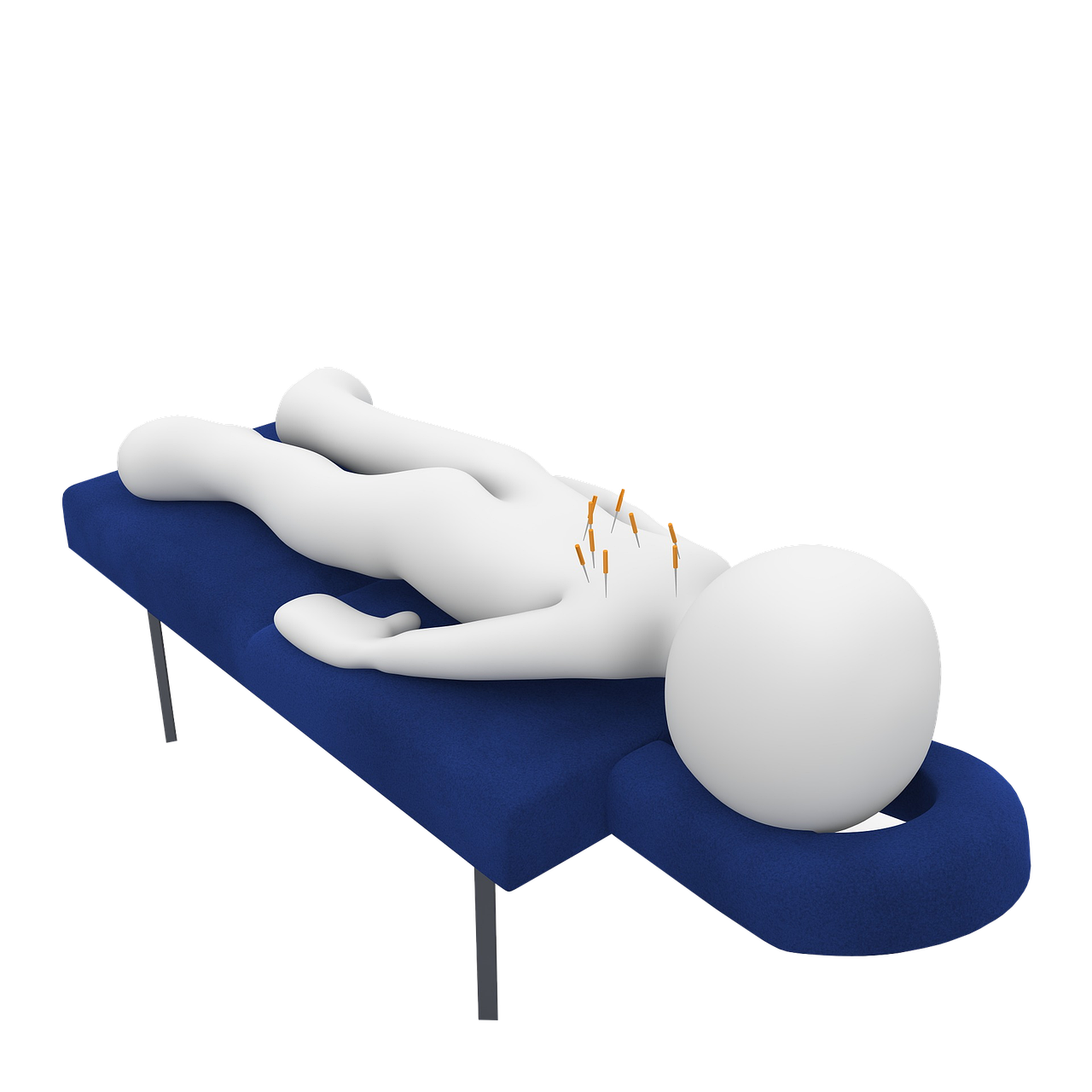How does acupuncture work?
Acupuncture is a treatment approach often adopted by physiotherapists to aid the management of pain and inflammation. Through needling, acupuncture is thought to stimulate the body’s own healing chemicals in order to aid recovery and enhance rehabilitation.
Our bodies have a natural ability to self repair – the use of Acupuncture, Acupressure or Electro-Acupuncture enhances these natural self repair mechanisms to optimise recovery and improve recovery timeframes.
Acupuncture also works alongside other physiotherapy modalities, such as manual therapy and individualised rehabilitation programmes.
What does acupuncture do?
The insertion of acupuncture needles stimulate the hormones, chemical and blood flow which reduce pain and inflammation as well as improve the energy flow within the body which travels through pathways known as meridians. In a healthy body, a balance exists between these different systems, both the superficial and deeper levels.

How does acupuncture help?
The occurrence of injury, disease, emotional trauma and/or infection can impact the natural flow of blood and energy within our bodies, causing an imbalance within our internal pathways/meridians. The stimulation achieved through the insertion of acupuncture needles can positively influence these imbalances.
For example, from an eastern medicine perspective altered energy pathways can cause stagnation, similar to putting a plug in the sink, which may result in pain and inflammation to the area. Using acupuncture in this case would free the stagnation (or unplug the sink), helping restore the free-flow of energy and ultimately help to reduce inflammation and pain levels.
What the research says about acupuncture
- A 2012 UK study of a number of research projects on acupuncture for osteoarthritis in the knee concluded
“…acupuncture can be considered as one of the more effective physical treatments for alleviating osteoarthritis knee pain in the short term.” (Corbet et al., 2013)
- UK project analysing the safety of acupuncture:
“In conclusion, acupuncture is a very safe intervention in the hands of competent practitioners.” (White 2006)
- Acupuncture for Patients with Chronic Neck pain:
“Treatment with acupuncture added to routine care in patients with chronic neck pain was associated with improvements in neck pain and disability compared to treatment with routine care alone.” (Witt et al., 2006)
Is acupuncture safe?
- Acupuncture is considered a very safe treatment option when carried out by fully qualified professionals.
- Treatment needles are sterile and single use
- When carried out by a member of the Acupuncture Association of Chartered Physiotherapists (AACP), acupuncture is safe because of:
- strict hygiene guidelines that must be adhered too
- Annual evidence of continued professional training requirements to maintain their membership.
Are there any side effects with acupuncture?
Possible side effects may include:
- Fatigue
- light headedness
- Bruising
- Temporary localised bleeding on removal of the needle
- tenderness or redness where needles were inserted
Here’s how acupuncture helped some patients:
Acupuncture for shoulder pain
- After 3 sessions over 2 weeks, shoulder pain had reduced from 8 out of 10 to 3 out of 10
- Arm movement over head could now also be achieved
- No longer any pain while putting on a jacket or seatbelt
Acupuncture for neck pain, stiffness and headaches
- After 5 sessions over 2.5 weeks, headaches had cleared
- Neck pain was no longer interrupting their sleep
- They could easily turn their head to check for traffic when driving
Acupuncture for knee pain and swelling
- After 4 sessions over two weeks, knee pain had reduced to allow for better movement quality
- After 6 sessions over three weeks, swelling had reduced significantly, allowing the knee to be fully straightened
If you have been struggling with joint inflammation, pain and/or tiredness, acupuncture may be the answer!
If this approach sounds like it may help you and you would like to find out more, please see below:
For more information:
- Please call us now on: 028 9187 1701 or visit our Contact Us page.
- Check us out on Instagram
- Check us out on Facebook
